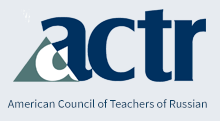Russian Language Journal
Keywords
heuristics, generative AI, ACTFL proficiency scale, register, proficiency
Abstract
This paper proposes to look at methods for integrating artificial intelligence (AI) into the upper-level Russian as a foreign language (RFL) classroom in activities where variable search terms are used to modulate target proficiency levels according to the ACTFL scale. Specifically, this paper relies upon a series of classroom-based activities that employed AI technology to parse the short stories of Anton Chekhov. While employing some simple methods governing AI search terms can help to create a usable database of sample texts at varying proficiency levels, problems of machine language inherent to emerging generative AI still need to be addressed and examined with students to allow for responsible and effective integration of AI learning techniques. The article will examine best practices and challenges when using AI-based activities as scaffolding to understand and engage with Russian literature. One of the significant challenges of AI in this instance involves modeling heuristics with RFL students to allow them to effectively search with generative AI. Indeed, modulated search terms—and modulating the length of AI-generated responses—can help not only to generate texts conforming to the appropriate register and proficiency levels, but also to challenge students to employ a variety of learning methods in generating feedback in a variety of graded metrics.
Recommended Citation
Groce, A. M. (2024). "In 50 Words or Less": Using AI to Modulate Target Proficiency Levels in the Russian as a Foreign Language Classroom. Russian Language Journal, 74(1). https://doi.org/10.70163/0036-0252.1404


